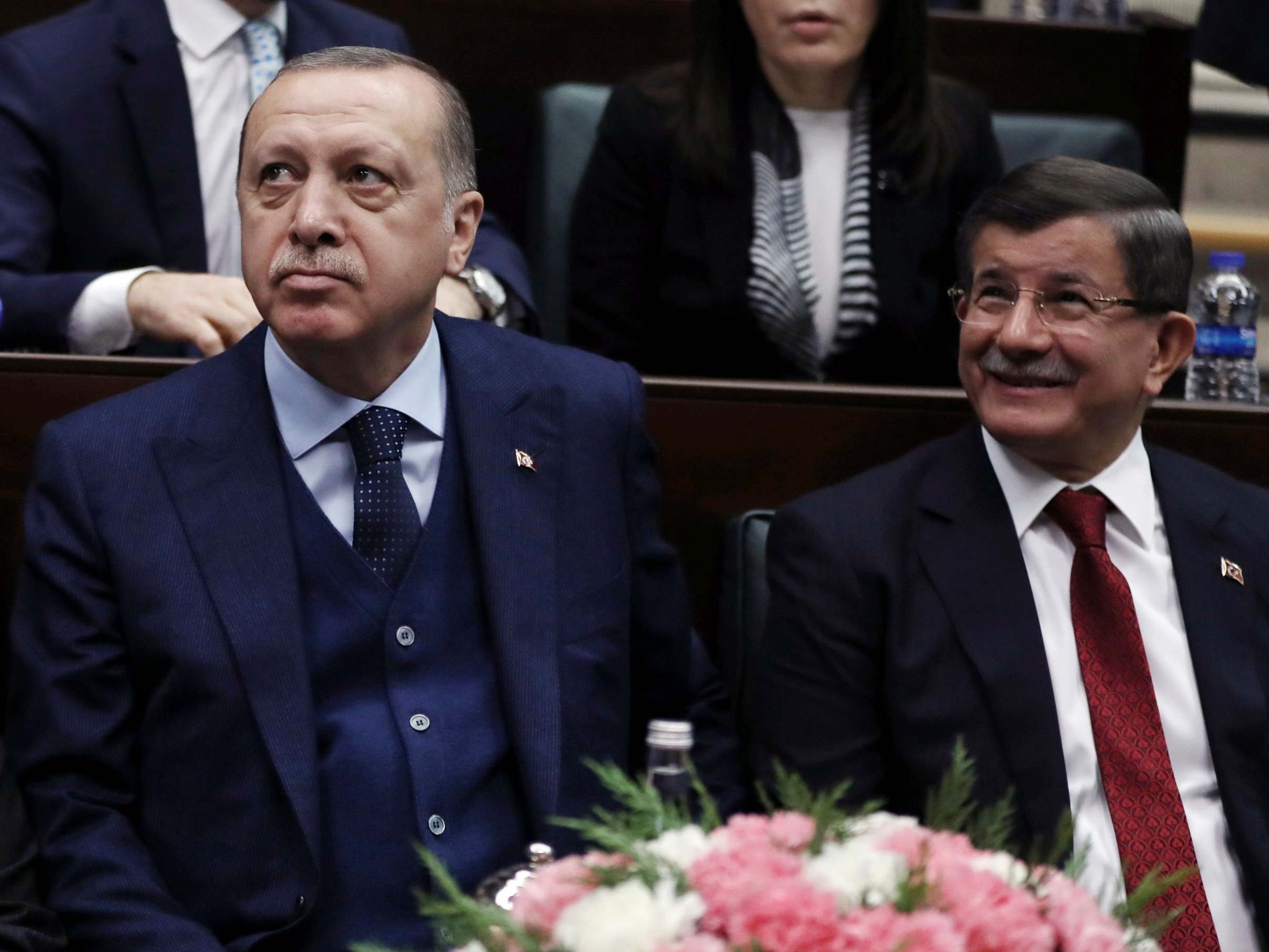Erdogan’s onetime righthand man bolts amid cracks in Turkey’s ruling party
Ahmet Davutoglu, a former foreign minister and prime minister, says he’s leaving the Justice and Development Party, the third major figure to do so

A onetime giant of Turkish politics defected from the ruling party Friday, becoming the third pillar of Recep Tayyip Erdogan’s organisation to break away from the group.
Ahmet Davutoglu was once secretary general of the Justice Development and Party (AKP), and has served as both prime minister and foreign minister of Turkey under Mr Erdogan. But he fell out of favour with Mr Erdogan in recent years, and has been sharply critical of his rule in recent months, prompting the party’s disciplinary board to consider his expulsion.
In a televised appearance, the 60-year-old scholar and diplomat said he was quitting the AKP rather than forcing the trauma of a schismatic confrontation.
“We are resigning from our party for which we broke sweat for years to save the AK Party base from the sorrow of seeing their own [former] chairman expelled,” he said, speaking at a press conference alongside two allies within the party.
For several years, Mr Davutoglu’s criticisms had been muted and mostly tolerated by Mr Erdogan. But an allegation he made last month suggesting government complicity in a series of 2015 terrorist attacks apparently crossed the line. The violent attacks scuttled peace talks between the Turkish state and rebellious Kurds, and appeared to bolster Mr Erdogan’s popularity ahead of general elections.
Mr Davutoglu’s announcement follows the departure of Mr Erdogan’s former finance and foreign minister Ali Babacan, who has disclosed plans this week to launch a new political party. Another founder of the AKP, former president Abdullah Gul, has been rumoured to be behind the effort but has yet to formally announce any involvement.
Mr Davutoglu was widely seen as more moderate than Mr Erdogan, and has voiced sympathy for opposition activists and journalists caught up in the government’s years-long dragnet. But he was also the architect of the country’s Syria policy, and is blamed by both Erdogan supporters and opponents for opening Turkey’s borders to allow millions of Syrian refugees to settle in the country.

Analysts say Mr Babacan’s prospects are better. Many Turks see him as the man behind the country’s decade-long economic boom, and see his departure from the cabinet in 2015 as the beginning of Turkey’s fiscal troubles. In an interview with the daily paper Karar this week, Mr Babacan insisted his new party would stand up for human rights, civil liberties, democracy and the rule of law.
“This is what Turkey strongly needs right now,” he was quoted as saying. “Freedom of thought and freedom of faith. The state itself should be the guarantor of this.”
Unless there is pressure for early elections, Mr Erdogan will remain firmly in charge as president until 2023. He has dismissed the defections, predicting Mr Babacan “will go nowhere” by forming a new party, and accusing him of dividing the Muslim community.
The AKP dissidents may have a hard time winning over a large enough segment of voters to carve out their own political base. Secular, nationalist, and leftist opposition parties broke open Turkey’s constricted political space this year with victories against Mr Erdogan’s allies in mayoral elections, and some have accused the AKP dissidents of opportunistically entering the fray while doing little to resist the party’s abuses when they were in government.

“We didn’t really know about any of the disputes they had until they left,” said Onur Erim, president of Dragoman Strategies, an Istanbul risk consultancy. “Nothing has surfaced over the years that there were major disagreements over policy. If there was, why didn’t they do anything about it when they were part of parliament or the cabinet and had seats and roles?”
But analysts say the defections could nonetheless hurt Mr Erdogan, and help the opposition, potentially ending the political dominance of the AKP which began in 2002.
“We are not sure whether it will lead to a big split among party members, but Davutoglu is claiming that the AK Party has lost its soul, its founding principles,” said Ilhan Uzgel, a political scientist based in Ankara. “He may not garner a lot of votes, but it may harm the image of the party, which is going in the direction of authoritarianism and corruption.”
Join our commenting forum
Join thought-provoking conversations, follow other Independent readers and see their replies
Comments
Bookmark popover
Removed from bookmarks